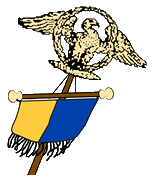

18TH ST ALBANS
AQUILA
SCOUT TROOP
Member Information > Troop policies > Being a scout
SCOUT BEHAVIOUR AND TAKING PART
This Troop provides a wide range of exciting activities with weekly meetings, several weekend activities and a Summer Camp. All of this depends on the participation of volunteer leaders, wanting to provide those activities for young people who want to participate in THEIR Troop. Weekly meetings includes training for weekend activities, such as camps: participation in both is essential part of being a Scout in this troop.
We therefore provide guidelines for what we expect of Scouts, in terms of behaviour, uniform, and regular participation. These are realistic measures that, if young people wish to be scouts in their Troop, they can easily achieve. If not, then membership may be lost, allowing us to concentrate our efforts with Scouts who want to belong and take part.
BEHAVIOUR
1. The Scout Law provides a Code of Behaviour for scout activities: this Law is one of the things that makes Scouting unique. It can be found here.
2. We expect that young people, belonging to this Troop, exercise self-discipline and quickly learn when is the time for seriousness and when a more relaxed behaviour is appropriate. Poor behaviour from one scout is detrimental to every other scout in the Troop.
3. A scout (not parents) will be warned, if behaviour is below standard and therefore jeopardizing a scout's membership in the Troop. A scout, who is persistently disruptive or causes a major problem, will be sent home after suitable warning, whether from the Group Headquarters or from a trip away from St Albans. Persistent disruption is likely to lead to suspension: becoming an active scout again will require a satisfactory conclusion to that suspension.
UNIFORM
aScouting is a uniformed organisation and we require full uniform, except when announced. The uniform is described here and consists of the blue cargo trousers, green shirt (with correct badges), Group neckerchief and a woggle.
SUBSCRIPTIONS
1. Unfortunately we need to include timely payment of subscriptions in being an important part of "being a scout".
2. Late payment makes extra work for the leaders and delays payment of the term's money to the Troop.
ATTENDANCE - WEEKLY MEETINGS
1. Weekly meetings are the main way in which scouts get to know each other, to learn to work and play together and to train for camps. We therefore expect regular attendance.
2. Of course, scouts may have other things on and so miss occasional meetings. As we plan meetings on the basis of scouts being present, then we expect that we are informed ahead of time if a scout is to absent. In that way, the scout is not recorded as "absent".
3. If uninformed absences are frequent, then we remove the scout from our list, and he/she will be deemed to have left, and will deregistered at the start of the following term, unless we can sort out a plan to improve attendance.
4. Note that we expect scouts to try hard to be on time for meetings. If lafirst game! However, a scout may sometimes need to be late for good reason: that is no problem, but we do need to know that the scout has arrived.
ATTENDANCE - CAMPS
1. Some scouts come on almost all camps, some less. Of course, we realise there can be weekend clashes or other reasons why scouts do not register for a camp.
2. However, camping and outdoor activities are central to our scouting programme and are needed for much progress within the Troop, such as badges (leading to Chief Scouts Award) and leadership positions (Assistant Patrol Leader, Patrol Leader or Senior Patrol).
4. We therefore put a target of at least 50% attendance at camps, although the appropriate proportion may vary with the scout and with the type of activity.
5. It is worth pointing out the obvious, that there may be reasons why we cannot accept scouts on particular camps. This maybe because of poor behaviour, too few leaders (including parents) to deal with all, for example. Unfortunately, paying money does not necessarily guarantee a place, although we hope exceptions are very rare.
PROGRESS AND INVOLVEMENT
1. Being a scout is not to do with solely "turning up", but becoming involved and playing a full part in the Troop.
2. We expect each scout to progress with award badges: Completing the Outdoor Challenge Badge within one year of joining is good evidence of this involvement, as this involves coming on at least a weekend camp (not one night or competitions) to do the outdoor components, doing something themselves (First Aid Kit), and participating in meetings where the indoor components are completed.
3. Complete a further two Challenge Badges in the following year. This minimum is a fairly low level of participation, given the opportunities in this Troop, and is needed as showing a wish to continue involvement with this Troop.
4. Otherwise, the young person should make way for others who do wish to be involved.
YEAR BADGE
1. What has been often called "Year badge" is properly entitled "Participation Badge" and is presented to scouts who have participated within the guidelines set out above. That is, they have accumulated a year of active participation.
2. This roughly that means attending at least 70% of meetings (pre-reported absences or lateness do not count against).
3. It also involves attending at least two camps during the year - one being at least a whole weekend in tents.
4. If a scout does not achieve the required participation, the badge will be delayed until the extra participation is achieved. For most Scouts, this will make no difference to when they get the badge.